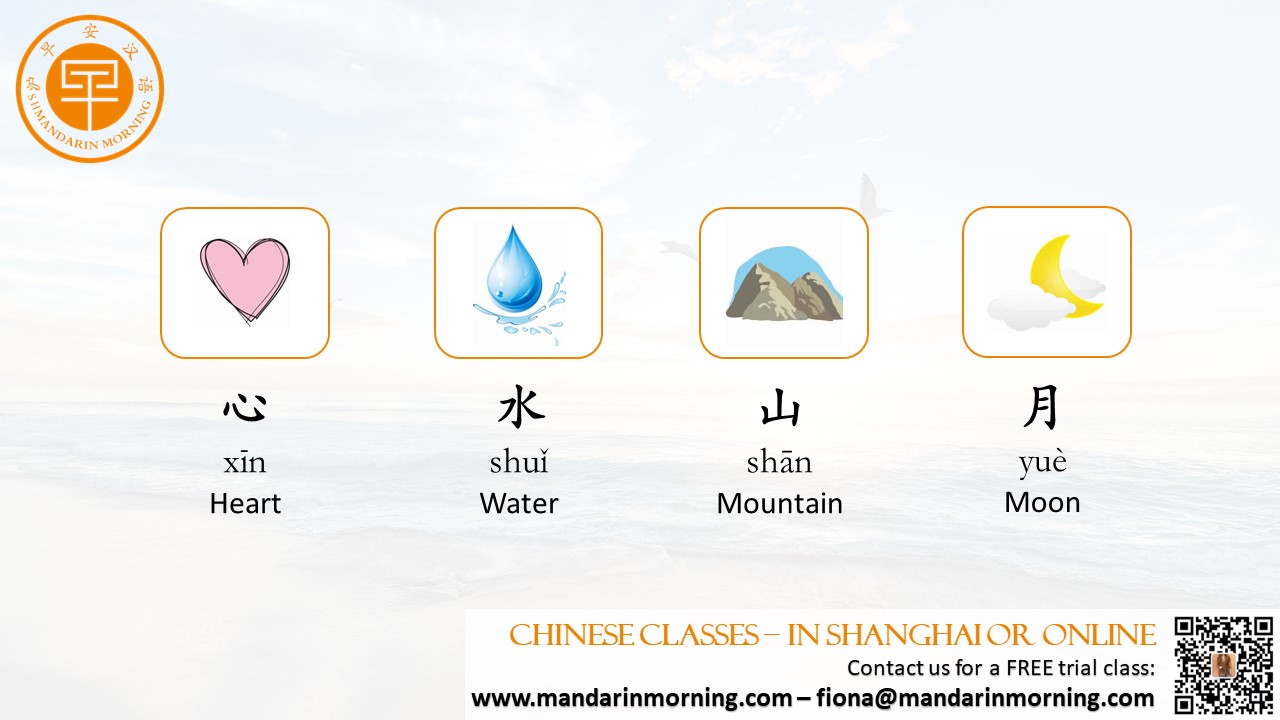| Do you think learning Chinese characters is difficult? Well, here are ten of the simplest characters you’ll ever encounter to prove you different. This is part two of our article.  Mouth 口 Let’s shift from abstract to tangible with the character 口 (kǒu), which portrays a wide-open mouth. Tip: Think of someone going “Ahhhhhhhh!” as if they’re at the dentist opening their “mouth” widely. Now, an important note: 嘴巴 (zuǐba) is another word for “mouth,” which is more commonly used when talking about the physical part of the body. Heart 心 Diving deeper into ourselves, we encounter 心 (xīn), which represents the “heart.” And you’ll find, especially with our illustrations, that it’s sketched in a way reminiscent of an actual heart. Beyond its primary meaning, 心 can also signify “mind” or “center” in specific contexts. Water 水 Did you know that our bodies are approximately 60% water? It’s often said that water is the essence of life. The Chinese character 水 (shuǐ) captures this essence beautifully. Originally depicted as a river flowing between two banks. Today, it’s primarily used to signify “water” or “liquid.” Tip: Imagine the character as “water” currents, with waves cascading down its left and right sides, giving life to its meaning. Mountain 山 Next, we come to the character for “mountain”: 山 (shān). This character captures the essence of towering peaks and vast ranges. If you look closely, it’s as if you’re seeing a mountain’s outline against the horizon. Depending on its use, 山 can also mean “hill.” Tip: Visualize 山 as a mountain range, with the highest peak in the center, flanked by its smaller counterparts on either side. Moon/Month 月 Wrapping things up, let’s bring in our final character: 月 (yuè). Picture this: a crescent “moon” gently curving in the night sky. That’s the origin of this character! And because the moon changes shape every night, marking the passing of days, it’s no surprise that 月 also means “month.” |